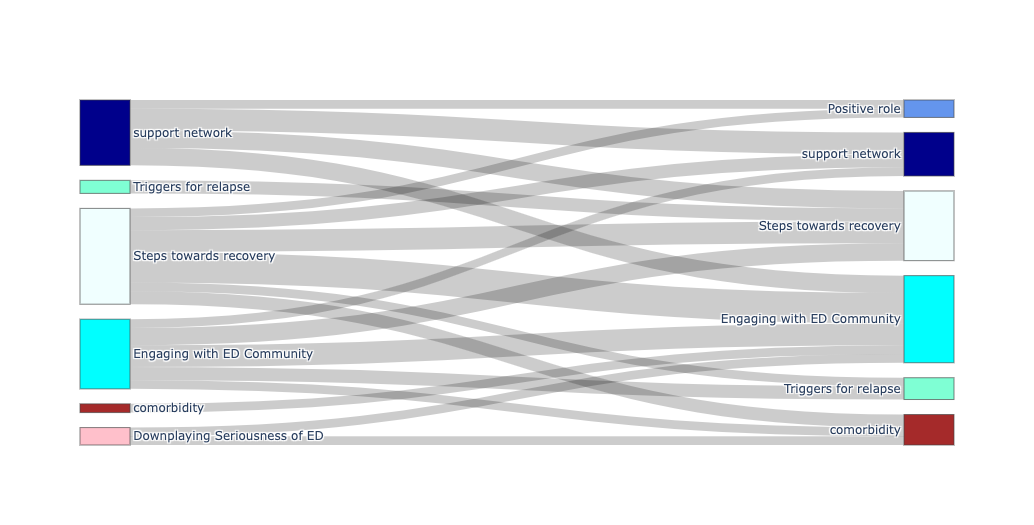
People are using social media to articulate their life transitions; e.g., childbirth, pregnancy loss, substance misuse, gender transition, mental health, eating disorders (ED), etc. People rely on social networking sites (SNS) to connect with others, express their individuality, be entertained, or to be informed about the world. Social media platforms complementarily provide technology for individuals to share their thoughts, feelings, ideas, interests and more. These disclosures can be explicit or implicit, public or private, anonymous or attached to their identity. Technology mediated communication is being used by people to share commonalities of their experiences of an issue or a phenomena.
ED is one of the phenomena that people use social media to share their experiences, narrate their journey, and express their feelings in the transitions they go through often described as a recovery journey.
There has been very little focus or attention paid to how people use technology, specifically their social media to cope with the emotional turmoil and negative experiences felt during the transition phase.
While many previous works consider changes as binary major events (i.e., only one stage at a time), less examination has been done on quotidian transitions. Many life transitions are linear processes – childbirth, gender transition, promotion etc. But when it comes to mental health, specifically recovery, it is easy to see that the process is non-linear and that changes happen over a period of time: progress is interspersed with periods of relapse, impulses, stagnation etc. As such it becomes all the more important to explore how people use their social media to explain or discuss the process on their recovery journeys.
Submitted to ACM Transaction on Human-Computer Interaction (TOCHI)